Oil price posts two-year highs - but how long can it last?
Brent rose above $59 a barrel this week, its best third-quarter showing since 2004

A free daily email with the biggest news stories of the day – and the best features from TheWeek.com
You are now subscribed
Your newsletter sign-up was successful
Oil price: which way will the market go now?
01 February
The oil price appears to be at a critical junction from which it could turn back sharply lower in the coming months or embark on a sustained rally.
Having hit a near 13-year low earlier this month of around $27 a barrel, international benchmark Brent crude has been rising over recent sessions and peaked at close to $36 in Asia overnight. The price has long since decoupled from the actual cost of production and is now dependent on whether there will be a deal to cut global supplies, which still exceed demand by at least one million barrels a day.
The Week
Escape your echo chamber. Get the facts behind the news, plus analysis from multiple perspectives.

Sign up for The Week's Free Newsletters
From our morning news briefing to a weekly Good News Newsletter, get the best of The Week delivered directly to your inbox.
From our morning news briefing to a weekly Good News Newsletter, get the best of The Week delivered directly to your inbox.
Speculation that such a deal is close has driven the rally of the past few sessions. Russian officials claimed to have received an offer from the Saudi Arabia-dominated Opec cartel for a coordinated production cut of five per cent and said a meeting could take place in February. But there is considerable debate that this apparent rapprochement will lead to material actions.
"We do not expect such a cut will occur unless global growth weakens sharply from current levels, which is not our economists' forecast," Goldman Sachs analysts wrote, in a note reported by Reuters. Goldman was last year the first to predict the oil price could drop to $20 or below – there have since been forecasts of as low as $10 a barrel.
Doubts on the deal are widespread and are based, says the Wall Street Journal, on the fact Saudi Arabia has denied being the source of the offer to Russia, as well as another Opec oil power, Iran, remaining locked in proxy wars with the Saudis and so being unlikely to participate in any agreement after re-emerging from export sanctions. This, in turn, "makes it hard for Saudi Arabia to take the lead".
On the other hand, Saudi officials have said, according to a report on state television cited by CNBC, that while it was not the source of the five per cent cut offer, it will "cooperate with other oil producers to support the oil market". Fellow member Iraq, which recently reported record oil output, will also "agree and cooperate" with any agreed cut, said its oil minister Adel Abdul Mahdi.
A free daily email with the biggest news stories of the day – and the best features from TheWeek.com
Finally, there is US shale production, which has remained resilient so far but many expect to fall off soon. Financing arrangements are coming to an end and the economics of the business amid the price slump are punishing, which, notwithstanding any deal, should help ease production pressure elsewhere.
All of these issues should finally come into sharper focus over the next month and the oil price will move accordingly. The pessimists still outnumber the optimists but in truth, it could yet go either way.
Oil price: 'rumours could move market by 15 per cent'
29 January
The oil price surged nearly eight per cent to above $35 a barrel yesterday, ending a fourth consecutive session higher and heading for its second consecutive week of gains, as speculation grew over a deal to cut supplies.
It is a shift in this sentiment that has driven the ongoing rally. Hints from a Russian oil executive on Wednesday of a rapprochement with Saudi Arabia on cutting exports were apparently confirmed yesterday, as Russian energy minister Alexander Novak said the Opec cartel had floated the idea of a coordinated five per cent reduction to be discussed next month.
"Saudi Arabia remains committed to the balance of the market and is willing to cooperate with others to stabilize the market," a Gulf Opec official familiar with Saudi thinking told the Wall Street Journal. "All options will be considered and the doors are open."
The Journal adds that, according to International Energy Agency figures, Russia produced 11.1 million barrels a day of crude oil and liquid fuels in 2015, and Saudi Arabia pumped 10.1 million barrels of crude a day. As such, "a five per cent production cut by just Saudi Arabia and Russia would be sufficient to bring the market close to balance," analyst Jefferies said in a research note quoted by Reuters.
Very strong doubts remain over whether a deal will be reached, however, as Saudi Arabia also has an eye on output from its supposed Opec partners Iraq and Iran. Confusion over whether the offer to Russia came from Saudi Arabia or other members of the cartel such as Venezuela or Nigeria has tempered oil's momentum, dragging Brent crude to around $34 a barrel this morning.
Overall, analysts are warning that the heavy reliance on fragile sentiment is introducing a lot of volatility to prices that could catch traders out.
"Right now, we're entering a phase where rumours are going to move the market 15 per cent," said Todd Gross, the chief investment officer at QERI LLC. "You have to be really careful."
Oil price: Russia blinks first – is the slump coming to an end?
28 January
The oil price jumped significantly overnight and held higher as the first concrete signs that big producer countries might be willing to cut supplies buoyed brittle sentiment.
International benchmark Brent crude had been steady yesterday at $31 a barrel, around which it has been hovering for most of the week. Then, overnight, it rallied to in excess of $33 and had settled above this threshold in early London trading this morning.
This is still a brutal low that renders much global production loss-making, but it is a big improvement from the near 13-year low of $27 reached last week after a new year slump of more than 20 per cent. It also means the price has continued a tentative rally that is moving it further away from ultra-bearish forecasts of below $20 and as low as $10.
Sentiment is being shifted by hints that big supplier nations may finally be prepared to agree an end to an internecine turf war and cut production, which would ease the pressure on a heavily oversupplied market. The most promising sign yet of a policy shift came in the form of comments from a Russian oil executive yesterday.
Nikolai Tokarev, the head of Russian oil pipeline monopoly Transneft, said "an oil executives and government officials meeting in Moscow on Tuesday had reached the conclusion that talks with Opec were needed to shore up the oil price", says CNBC. Saudi Arabia has consistently said it will not cut supplies unless big non-Opec producers - and especially Russia - move first.
There is a long way to go before this translates into a cut in supplies – and there is a lot of scepticism that a workable accord can be reached. That formal meetings within government are finally yielding unequivocal statements of the need to cohesively cut supplies is a major step forward, however. Output cuts by global oil powers are realistically the only thing that will help prices rise.
Should the apparent rapprochement between the two main global oil powers run out of steam, the ongoing supply glut could still undermine the rally.
Reuters notes official data yesterday showed US domestic crude oil reserves surged 8.4 million barrels last week, far more than analysts had anticipated. Elsewhere, Saudi Arabia's deputy minister for company affairs at the Ministry of Petroleum and Mineral Resources said that international excess supply is probably running at a hefty two million barrels a day.
Oil price: why we could yet 'see more fireworks'
27 January
The oil price endured wild swings on Tuesday, rising more than six per cent at one point to above $32 a barrel and touching session lows below $29.
Both the international and US benchmarks are extremely volatile at the moment as the determination of many analysts that painfully low and loss-making prices must soon turn higher runs up against stubborn negative sentiment on excess supplies. A sustained recovery remains unlikely until there is at least some movement from larger producers on output.
In a sign of how desperate the market is for just such a sign, the intra-day surge recorded yesterday was prompted by the vaguest of hints of greater cohesion from rival oil powers Saudi Arabia and Russia - Iraq's oil minister said at an energy conference that he saw signs the two were more "flexible" on supply cuts, reports the Wall Street Journal.
But optimism off the back of the comments was short-lived. "We consider the likelihood of any agreement between these parties as extremely low," ANZ Research said in a note to clients.
Saudi Arabia has repeatedly refused to curb its production without action from others and Russia has been shown to be pumping at record levels. Add a post-sanctions Iran and record output from Iraq itself into the mix and you have a recipe for the supply glut continuing through this year.
When attention returns to existing oversupply, prices fall. Overnight data from the American Petroleum Association revealed a big rise in US domestic crude oil reserves of 11.4 million barrels, notes Reuters, with official figures due to be published later today. Ahead of this, global price barometer Brent crude was steady at a still-low $31 a barrel.
"This is a mega build as a result of refinery maintenance season. There can only be more weeks like this ahead," said John Kilduff, a partner with Again Capital. "We're going to see more fireworks."
This sense that the bearish sentiment on supply would continue to hold sway was reflected in a new forecast from the World Bank, says The Guardian. It has reduced its average price prediction for 2016 from $51 to $37 a barrel.
Oil price: 'there's no reason to expect prices to go up'
26 January
After one of the strongest ever two-day rallies, the oil price is falling again and ultra-bearish sentiment driven by oversupply concerns has taken hold again.
International benchmark Brent crude fell to a near 13-year low last week, close to $27 a barrel, before a two-session advance over Thursday and Friday that has been described by Reuters as "nearly the strongest ever" saw it rise to almost $33 at one point. Then a slide resumed on Monday and overnight – and this morning in London, the price fell back below $30.
Oil recovered as a result of a broader risk rally, prompted in part by the hint of further stimulus from the European Central Bank. There was also a sense that two features of the market that were deemed responsible for the latest slump - the return of oil-power Iran to the international export market and the slowdown in growth in China - should have been already "priced in" by traders.
The reality, according to analysts, is that there is more oil coming to a chronically oversupplied market in which there are still one to two million more barrels a day being pumped than bought. Iraq has just announced another new record output figure; Iran is set to flood the market; US production is not slowing, and Saudi Arabia remains stubbornly resistant to cutting its activity.
One other issue that had prompted the recovery was the blizzard that hit the US east coast and which was supposed to boost domestic demand for heating oil in particular. However, this was never going to turn around the supply-demand dynamic. "Friday's advance was an overreaction to the storm," said Jim Ritterbusch, of Chicago-based oil consultancy Ritterbusch & Associates.
Most continue to believe $30 or below, at which much global production is loss-making and oil-producing nations' budgets are in tatters, is "irrational". But the market appears likely to remain focused on excess supply until output is curbed. "There's more oil coming into the market and there's no reason to expect oil prices to go up," said James Williams, at WTRG Economics in London.
Hopes that the powerful Opec cartel may get its act together and change course to boost prices were hit again yesterday, as well. Secretary general Abdullah al-Badri argued that the market would recovery in a more sustained fashion and called on non-Opec members to slow production.
"It must be said that the prospects of any cooperation from outside Opec are weak at the best of times," writes the BBC's economics correspondent Andrew Walker.
-
 The ‘ravenous’ demand for Cornish minerals
The ‘ravenous’ demand for Cornish mineralsUnder the Radar Growing need for critical minerals to power tech has intensified ‘appetite’ for lithium, which could be a ‘huge boon’ for local economy
-
 Why are election experts taking Trump’s midterm threats seriously?
Why are election experts taking Trump’s midterm threats seriously?IN THE SPOTLIGHT As the president muses about polling place deployments and a centralized electoral system aimed at one-party control, lawmakers are taking this administration at its word
-
 ‘Restaurateurs have become millionaires’
‘Restaurateurs have become millionaires’Instant Opinion Opinion, comment and editorials of the day
-
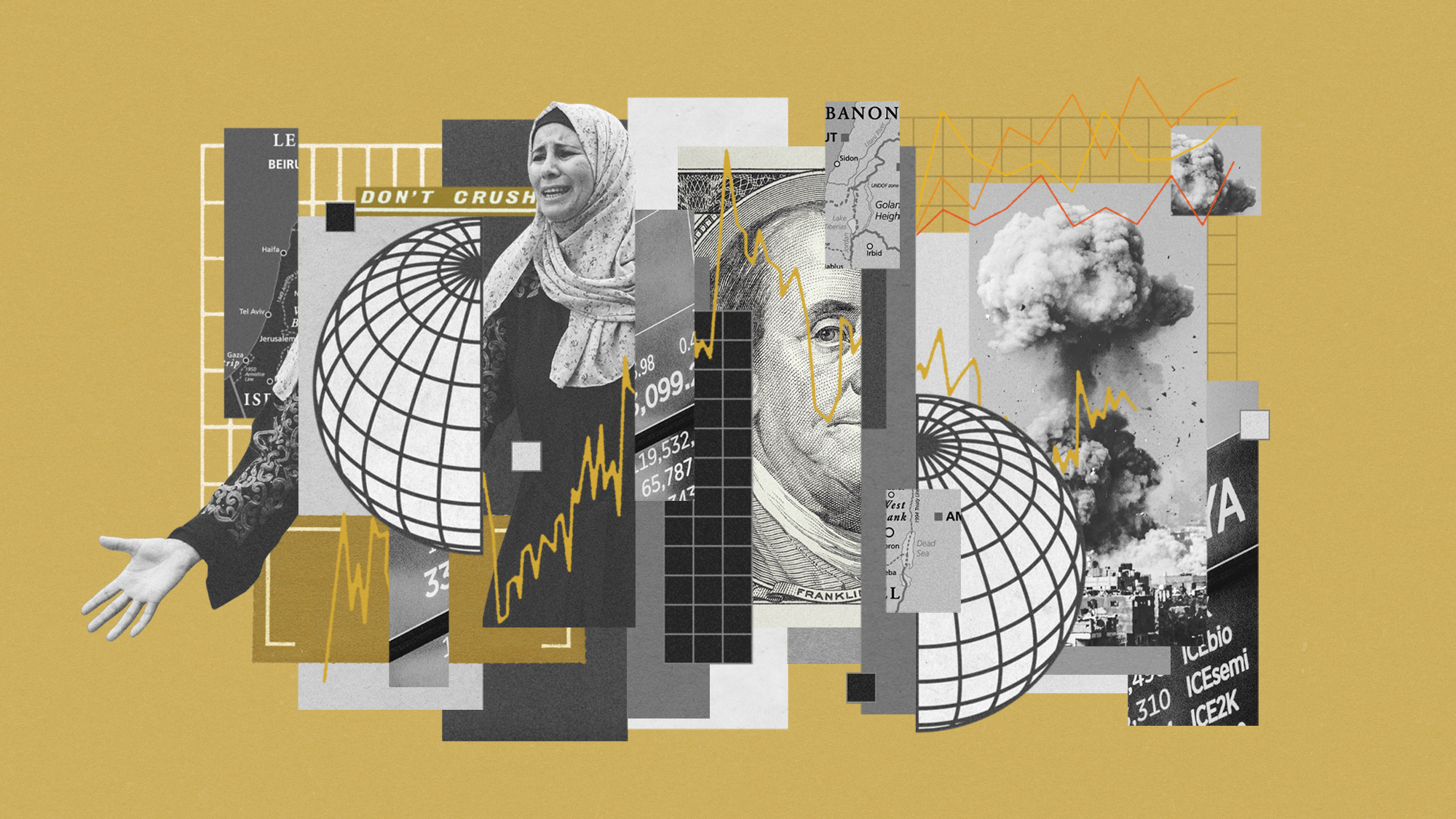 How might the Israel-Hamas war affect the global economy?
How might the Israel-Hamas war affect the global economy?Today's Big Question Regional escalation could send oil prices and inflation sky-high, sparking a worldwide recession
-
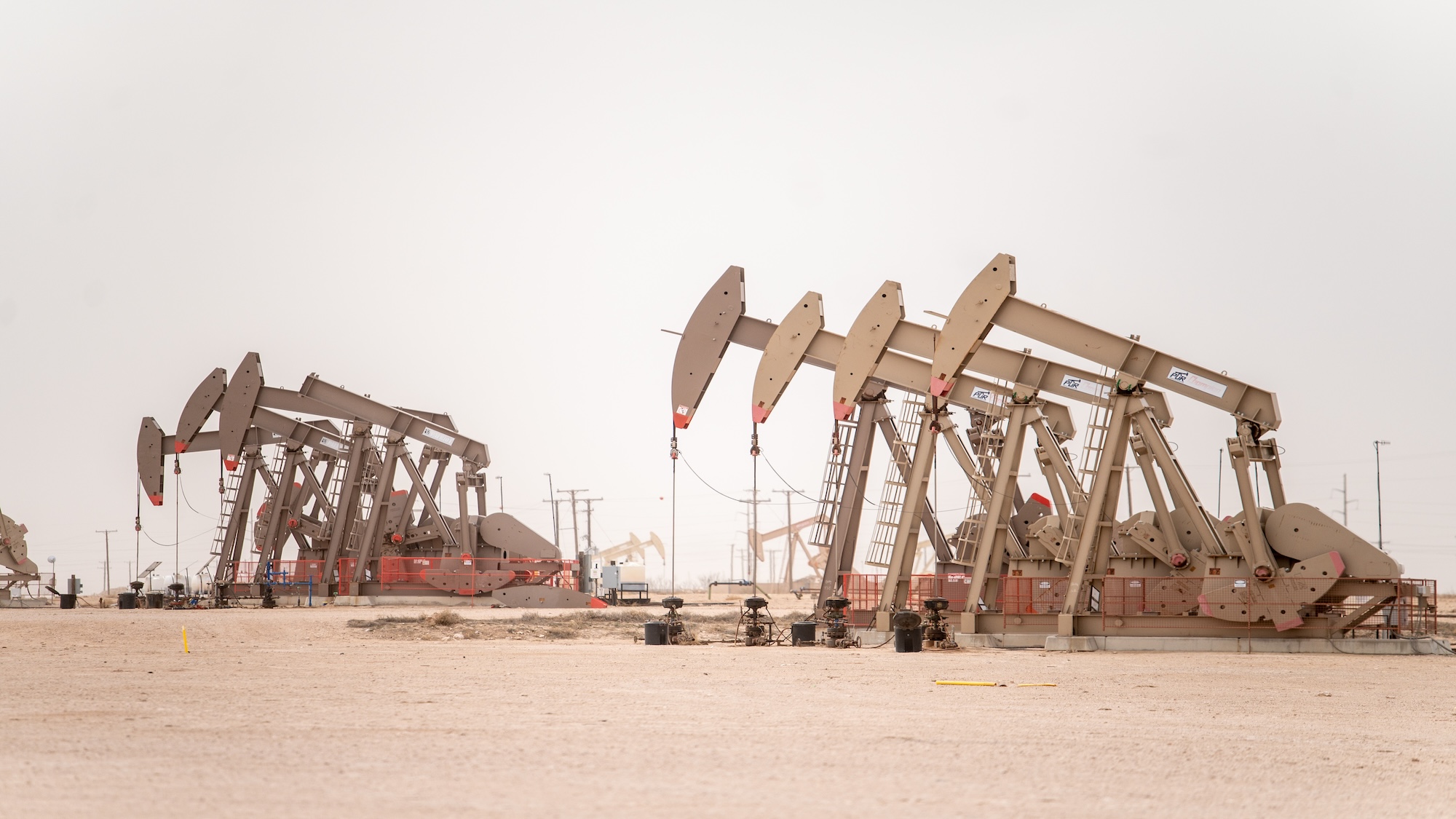 Recent mega-mergers could signal a turning point for the US oil industry
Recent mega-mergers could signal a turning point for the US oil industryTalking Point Both Chevron and Exxon have recently spent billions to acquire smaller oil companies
-
 Has Saudi Arabia lost control of oil prices?
Has Saudi Arabia lost control of oil prices?Today's Big Question Kingdom goes it alone to cut production, risking tension with US and reigniting cooling inflation in Europe
-
 US angered by Opec+ oil cut
US angered by Opec+ oil cutSpeed Read Energy prices to rise further as producers slash supply by two million barrels a day
-
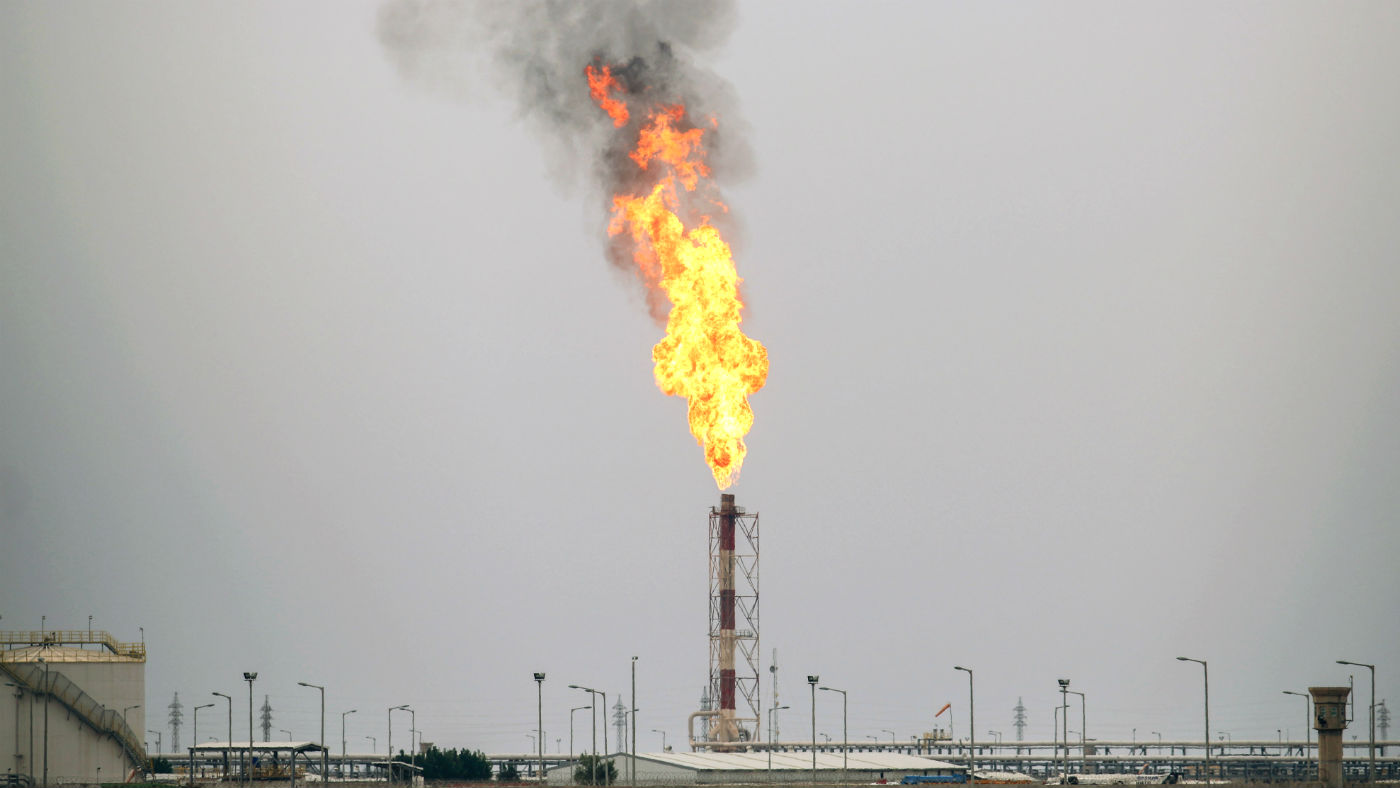 Global oil demand forecast lowered for 2020 and 2021
Global oil demand forecast lowered for 2020 and 2021Speed Read IEA report says jet fuel demand remains the major source of weakness
-
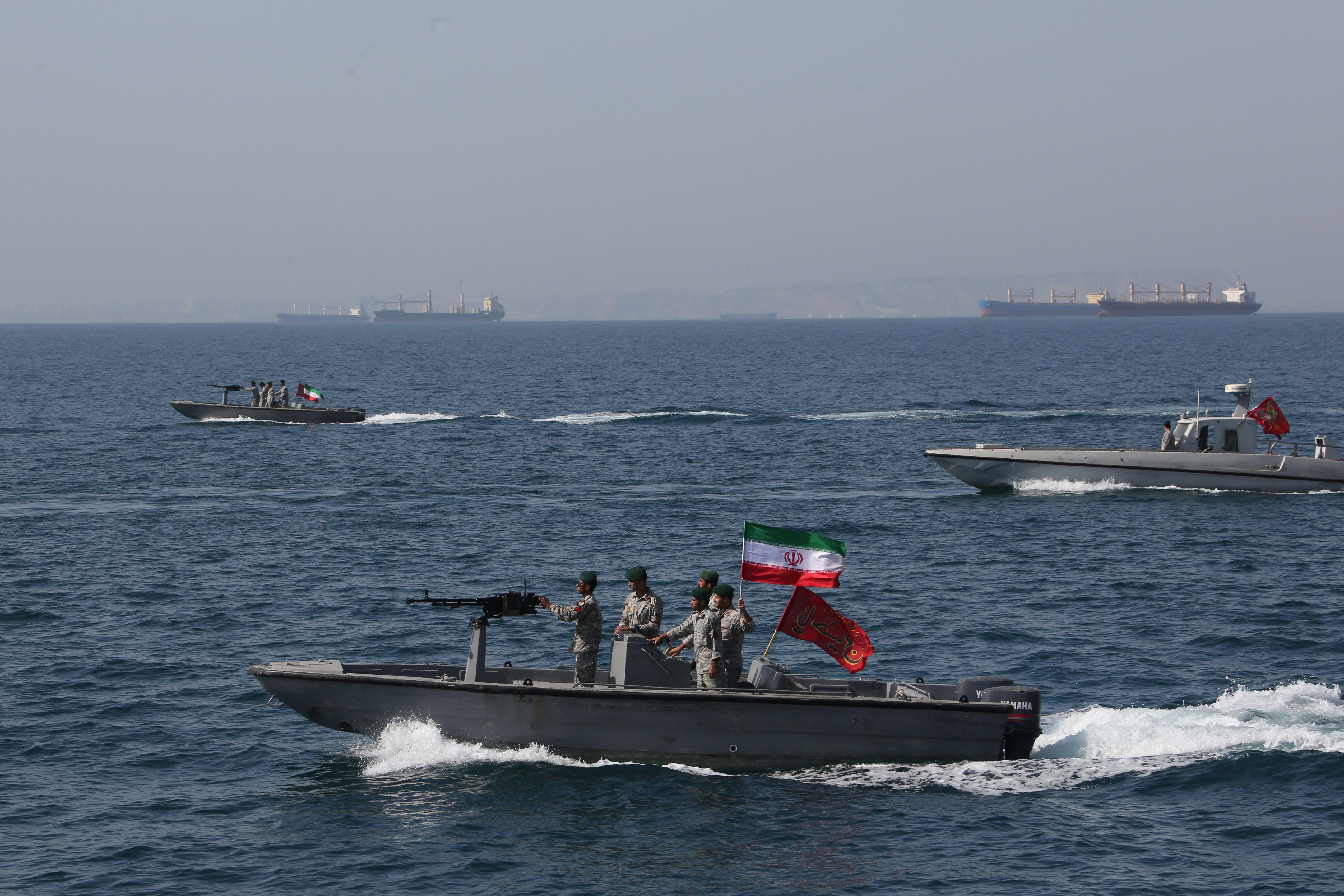 Are US-Iran tensions flaring again?
Are US-Iran tensions flaring again?In Depth Trump threatens military action over Twitter
-
 Can a deal be struck to raise oil prices?
Can a deal be struck to raise oil prices?In Depth Opec+ will convene today over video link in a bid to boost crude
-
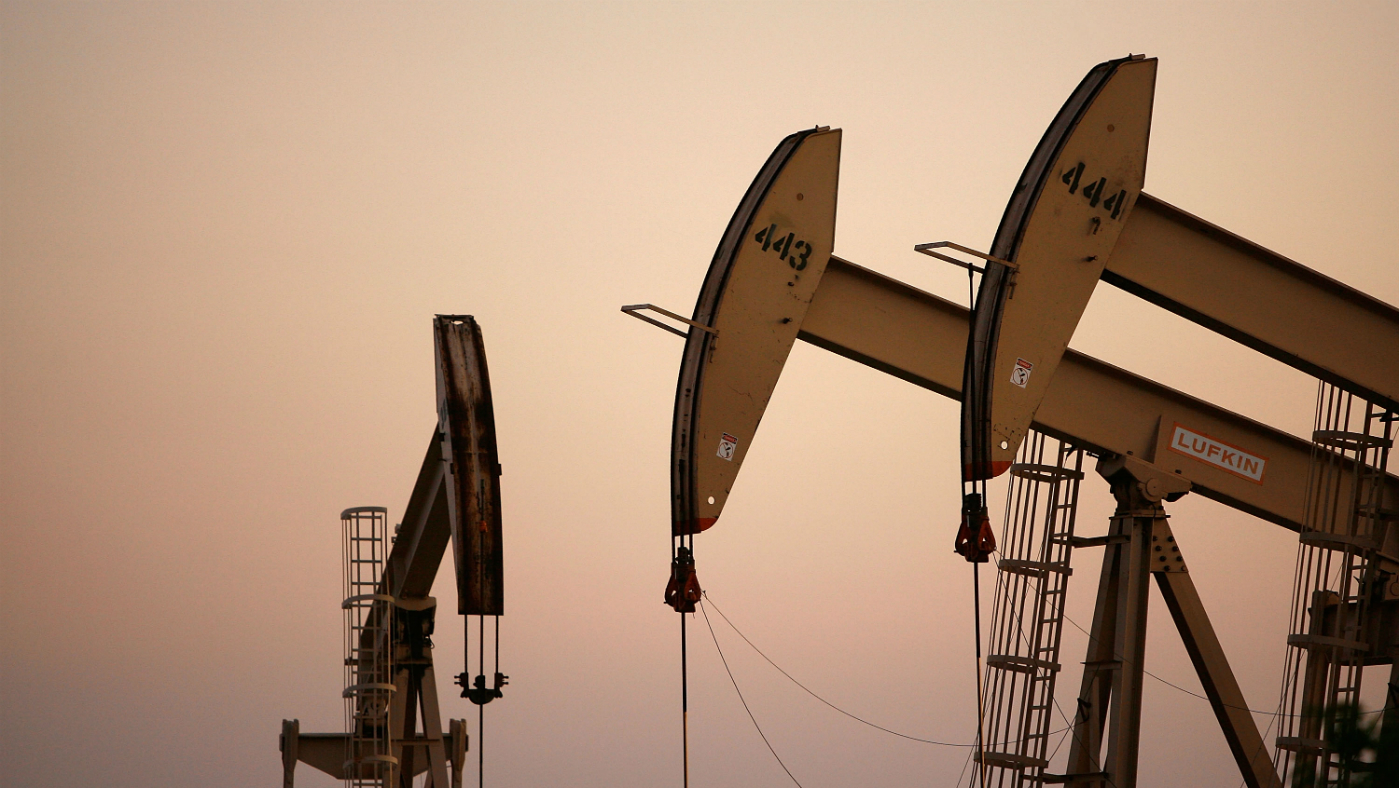 What do negative oil prices mean?
What do negative oil prices mean?In Depth Perfect storm of oversupply and storage shortages sees producers paying to get rid of US crude